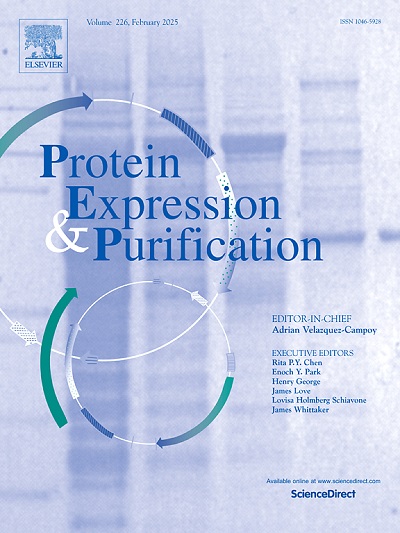Co-expression enhances cloning efficiency and protein production in CHO cells
IF 1.2
4区 生物学
Q4 BIOCHEMICAL RESEARCH METHODS
引用次数: 0
Abstract
Chinese hamster ovary (CHO) cell lines are widely used in the biopharmaceutical industry, particularly for the production of monoclonal antibodies and recombinant protein drugs. Recombinant cell lines are typically derived from single-cell clones to ensure product consistency and stability. However, the difficult-to-express recombinant proteins may impair single-cell proliferation, thereby significantly reducing cloning efficiency. In this study, co-expression of insulin-like growth factor-1 (IGF-1) was used to improve the single-cell cloning efficiency. Co-expression of IGF-1 significantly improved bulk pool growth and increased cloning efficiency by 53–196 %. Batch cell culture evaluation studies further demonstrated that IGF-1 co-expression enhanced monoclonal cell density by 29–64 % and recombinant protein yield by 47–89 %. Additionally, the growth profile, titer, and critical quality attributes of selected cell clones remained stable over 60 generations. The results of this study demonstrate that IGF-1 co-expression represents an effective single-cell cloning strategy by significantly enhancing cloning efficiency and enabling stable production of difficult-to-express proteins.
共表达提高CHO细胞的克隆效率和蛋白产量。
中国仓鼠卵巢(CHO)细胞系广泛应用于生物制药行业,特别是用于生产单克隆抗体和重组蛋白药物。重组细胞系通常来源于单细胞克隆,以确保产品的一致性和稳定性。然而,难以表达的重组蛋白可能会损害单细胞的增殖,从而显著降低克隆效率。本研究通过胰岛素样生长因子-1 (IGF-1)的共表达来提高单细胞克隆效率。共表达IGF-1显著提高了体池生长,克隆效率提高了53-196%。批量细胞培养评价研究进一步表明,IGF-1共表达可使单克隆细胞密度提高29-64%,重组蛋白产量提高47-89%。此外,所选细胞克隆的生长特征、滴度和关键质量属性在60代以上保持稳定。本研究结果表明,IGF-1共表达是一种有效的单细胞克隆策略,可以显著提高克隆效率并稳定地产生难以表达的蛋白。
本文章由计算机程序翻译,如有差异,请以英文原文为准。
求助全文
约1分钟内获得全文
求助全文
来源期刊

Protein expression and purification
生物-生化研究方法
CiteScore
3.70
自引率
6.20%
发文量
120
审稿时长
32 days
期刊介绍:
Protein Expression and Purification is an international journal providing a forum for the dissemination of new information on protein expression, extraction, purification, characterization, and/or applications using conventional biochemical and/or modern molecular biological approaches and methods, which are of broad interest to the field. The journal does not typically publish repetitive examples of protein expression and purification involving standard, well-established, methods. However, exceptions might include studies on important and/or difficult to express and/or purify proteins and/or studies that include extensive protein characterization, which provide new, previously unpublished information.
 求助内容:
求助内容: 应助结果提醒方式:
应助结果提醒方式:


